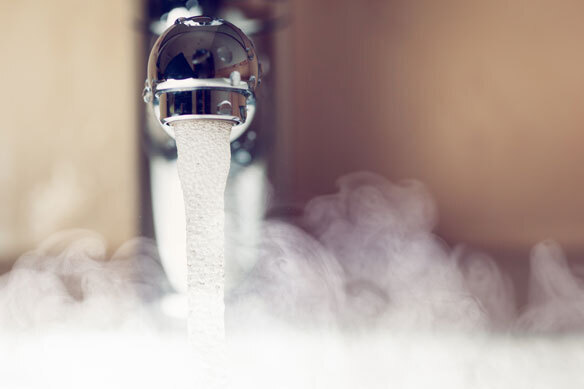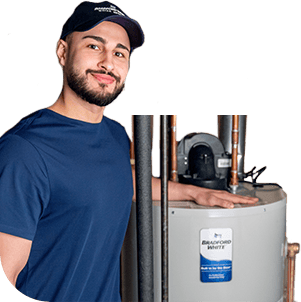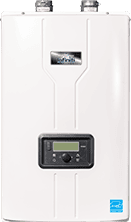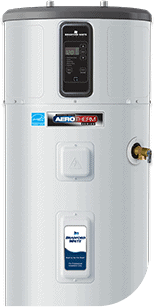10 Key Things to Know About Water Heaters

Your water heater is an unsung hero of your home. It quietly provides you with essential hot water for baths, showers, sparkling dishes, and clean clothes. To maximize the comfort, performance, and efficiency your water heater provides, it’s important that you understand how your water heater works. Here are 10 vital things to know about water heaters:
1. The Basics on Different Water Heater Types
Water heaters are not a one-size-fits-all appliance. There are three primary types you can choose from: electric water heaters, gas water heaters, and tankless water heaters. Each has its own set of advantages and disadvantages.
Electric water heaters use electricity to heat the water, which is cost-effective if you have low electricity rates. They can also be more efficient than gas heaters, as they don’t waste energy through venting. However, they usually have a higher upfront cost and can be slower to heat water compared to their gas counterparts. Learn more about electric water heaters here.
One type of electric water heater is a heat pump water heater. They use advanced heat pump technology to heat water more efficiently by pulling heat from the air. While they have a higher up-front cost, the efficiency of heat pump water heaters saves you money every month, so they effectively pay for themselves over time. Learn more about heat pump water heaters here.
Gas water heaters, on the other hand, use natural gas or propane to heat water. They are generally cheaper to operate thanks to lower gas prices. Gas water heaters heat water faster, so they are a great choice for a larger family with greater hot water needs. Gas water heaters require venting, a gas line, and can be less energy efficient. Learn more about gas water heaters here.
Tankless water heaters heat water as you need it, without the need for a large storage tank. This makes them incredibly energy-efficient and a great space saver. They provide unlimited hot water for as long as you need, making them a great choice for a family with higher hot water needs. Tankless water heaters are more expensive to purchase and install but can save you money in the long run due to their energy efficiency and longer lifespan. Learn more about tankless water heaters here.
2. Understanding the Uniform Energy Factor (UEF)
Your water heater is the second largest user of energy in your home – right behind home heating and air conditioning. The more efficient your water heater, the more money you’ll save on your utility bills. It’s important to consider your water heater’s Uniform Energy Factor (UEF). This metric tells you how well the water heater converts its energy input to heat and is a crucial factor in estimating efficiency and operational costs.
Gas water heaters typically have a higher UEF rating than electric models. However, tankless water heaters, especially those with a condensing design, can have the highest UEF rating of all, making them exceptionally efficient at converting energy into hot water. Learn more about your water heater’s UEF rating here.
3. Sizing Your Water Heater
Choosing the right size water heater is key. If the water heater is too small, you’ll run out of hot water. If it’s too large, you’re wasting money on heating water you don’t need. The right size depends on your household’s peak usage times, the number of people in your home, and how much hot water is used simultaneously (think of multiple showers running at once).
To help you size your water heater, you can consider the first-hour rating (FHR) and the recovery rate. The FHR tells you how many gallons of hot water a heater supplies during a busy hour, while the recovery rate is how quickly a heater can reheat the water after that first batch is depleted. If you use a lot of hot water at one time (such as doing laundry, washing dishes, and taking showers all at the same time), you’ll need a water heater with a higher FHR. The recovery rate is important if you’re using a lot of hot water over an extended period of time. So if one person takes a long shower and uses all the hot water in the tank, the recovery rate tells you how long you’ll need to wait before you can take another hot shower.
Your plumbing professional can help you properly size your water heater for your home. Don’t have a plumber? Search here to find a Bradford White professional in your area.
4. Looking at your Water Heater’s Long-Term Costs
The initial price is just the beginning when it comes to water heaters. You have to consider long-term operating costs. For instance, an electric water heater may have a higher operating cost than a gas water heater. A heat pump water heater will effectively pay for itself in energy savings over time. Tankless water heaters usually have a longer lifespan and lower operating costs than traditional tank models, but they are initially more expensive to purchase and install.
Remember to also factor in the costs of maintenance and repairs. Proper maintenance can lengthen the life of your water heater, improve efficiency, and lower your overall costs. Ask your plumbing professional about a maintenance schedule to keep your water heater running strong for years to come.
5. Considering Environmental Impact
The choices you make with your water heater impact the environment. Electric water heaters are efficient and have no emissions so they are generally considered to be more environmentally friendly. However, you need to consider how your electricity is generated. If you live in an area where the electricity is primarily generated by coal, this environmental benefit is diminished.
6. Installation and Maintenance Musts
It’s essential that you have a professional handle the installation of your water heater to ensure safety and efficiency. Plumbing codes, venting requirements, and proper electrical or gas connections are just a few factors that need to be diligently addressed.
Routine maintenance, like flushing the tank to remove sediment and checking the anode rod, is also important. Neglecting these tasks can lead to decreased efficiency, higher operating costs, and a much shorter lifespan for your water heater.
If you need a plumbing professional, you can search here to find a Bradford White professional in your area.
7. Learning the Lifespan of Your Water Heater
The lifespan of water heaters vary by type and model. Generally, both gas and electric water heaters last around 10-15 years. Tankless water heaters can last up to 20 years with lower maintenance requirements.
The quality of water in your area can also impact lifespan due to mineral build-up inside the tank. Flushing your water heater can help prolong its life, as can installing a water softener if you have hard water. Some manufacturers take extra steps to help prevent sediment buildup. For example, Bradford White’s Hydrojet® Total Performance System helps reduce sediment to maximize the life and performance of your water heater.
8. Understanding Which is Safer for Your Home
Safety should always be a top priority, especially with an appliance that deals with heat and potentially combustible sources like gas. Both electric and gas water heaters have safety features to prevent overheating and leaks.
Gas water heaters usually come with a flammable vapor ignition resistance (FVIR) system to reduce the possibility of accidental fires. For example, Bradford White’s Defender Safety System uses Flammable Vapor Ignition Resistant technology with ScreenLok® to prevent possible ignited vapors from traveling outside of your water heater.
9. Exploring Innovative Features and Technology
Water heater technology is evolving, with manufacturers adding innovative features to improve efficiency and user experience. For example, Bradford White Water Heaters now feature Vitraglas® Tank Lining with Microban®, which helps prevent the growth of bacteria, mold, and mildew on the surface of the tank lining. Some models offer Wi-Fi connectivity for remote monitoring and control, leak detection systems, smart scheduling, and vacation modes to conserve energy. Learn more about the Bradford White Connect™ App here. Others include heat pump technology, which is more efficient than traditional electric heating elements. Check out the advanced AeroTherm® Series Heat Pump Water Heater from Bradford White.
10. Analyzing Rebates and Incentives
Many local and state governments, as well as utility companies, offer rebates and incentives to encourage the adoption of energy-efficient water heaters. These can significantly lower the upfront cost of a new unit and should be a part of your decision-making process.
Rebates may be larger for certain types of water heaters, such as those with higher UEF ratings or that utilize renewable energy sources. It is worth researching these programs as part of your purchasing process to capture these savings for your household. You can search here for available rebates and tax credits in your area.



